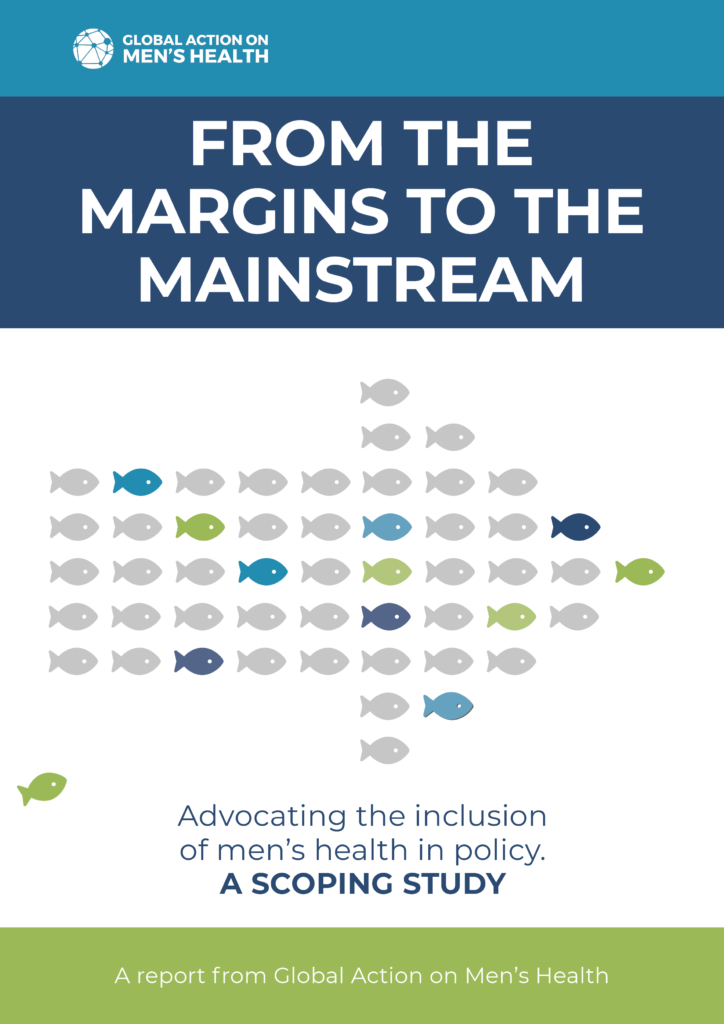From the Margins to the Mainstream
From the Margins to the Mainstream: Advocating the inclusion of men’s health in policy, GAMH’s latest report, was published on 19 June 2020 , during International Men’s Health Week.
The COVID-19 pandemic has shone a cruel light on the state of men’s health globally. The most recently-available data, which is provisional, shows that in 38 out of 40 countries for which data is available, more men have died than women as a result of the virus. In several countries, over twice as many men as women have died.
This excess mortality burden on men is almost certainly due to a mix of biological, behavioural and structural factors. Men have a weaker immune response to respiratory infections, for example, and they are more likely to drink alcohol at unsafe levels and smoke. They are less likely to wash their hands regularly or seek medical help at the right time.
Crucially, a higher proportion of men have an underlying health condition, such as cardiovascular disease, diabetes or chronic obstructive pulmonary disease, that can significantly increase the risk of serious COVID-19 disease and death. Men who are in low-paid, precarious work or who are from certain ethnic groups are most at risk.
The particular vulnerability of men to COVID-19 is directly linked to the historic neglect of men’s health. If men’s health had been systematically addressed before the pandemic, especially for men in the most economically and socially disadvantaged groups, the virus would almost certainly have had a less dramatic impact. And there would also have been far fewer cases of the underlying conditions that were already exacting a heavy toll on men’s lives – and which will continue to do so once the pandemic has passed.
Many are hoping that something good will come out of the suffering caused by COVID-19. From a men’s health perspective, that could be a new understanding of the extent of men’s health problems and the need for concerted action to address them at the global, national and local levels.
This action has to start with policy. Drawing on the latest clinical knowledge and the growing body of robust evidence on effective health promotion, new policies can be developed that can stimulate and facilitate the development of new kinds of services, programmes and interventions that improve men’s health outcomes, especially for men in the most disadvantaged and at-risk groups.
From the Margins to the Mainstream examines the policy response to men’s health to date, the barriers to policy development, the currently-available opportunities and, most importantly, the policy priorities and the next steps necessary for their achievement through effective advocacy. The impact of COVID-19 has without doubt made this made this much more urgent work.
GAMH held two webinars to share and discuss the report’s findings.
We would very much like to know what you think of the report. We are aiming to produce a short follow-up statement in September/October which summarises the responses we have received and sets out how we propose to take forward a new advocacy campaign that helps to make men’s health mainstream.
2 July 2020


